8 min. read
5 Most In-Demand Engineering Jobs!
Hey guys! In today’s article, we’re going to talk about the most in-demand jobs and which skills will help you succeed in them. I’ve mentioned before that you should study not what’s popular now or what will be in demand in the next 5 years, but what will be in demand in the next 10–20–30 years. This way, you won’t find yourself out of a job when you graduate from university and get some technical degree and career experience. At the end of the article, I’ll share my recommendations on which professions I think are the best to choose.
As an engineer, I trust numbers, standards, and statistics, rather than just someone’s subjective opinion. I’ve read many articles on this topic, and most of them are just content for the sake of content, with almost the same information and lacking in numbers and science-based analysis. To be more objective, I went to the U.S. Bureau of Labor Statistics website to analyze the data and identify the professions with the highest employment projection.
What does “employment projection” mean? It means the expected growing demand for specialists in this profession. Why the U.S.? Firstly, because they have very good and clear statistics that are hard to find in other countries. Secondly, the U.S. is still the leading economy in the world and continues to set trends in technology development.
Computer Systems Engineer
OK, the first profession in the list is Computer Systems Engineer. Employment of computer systems analysts and engineers is projected to grow 7 percent by 2034, much faster than the average for all occupations. As organizations across the economy continue to rely on information technology (IT), computer systems analysts will be hired to design and install new computer systems. Small firms with minimal IT requirements will find it more cost-effective to contract with outside firms for these services rather than hire computer systems analysts directly.
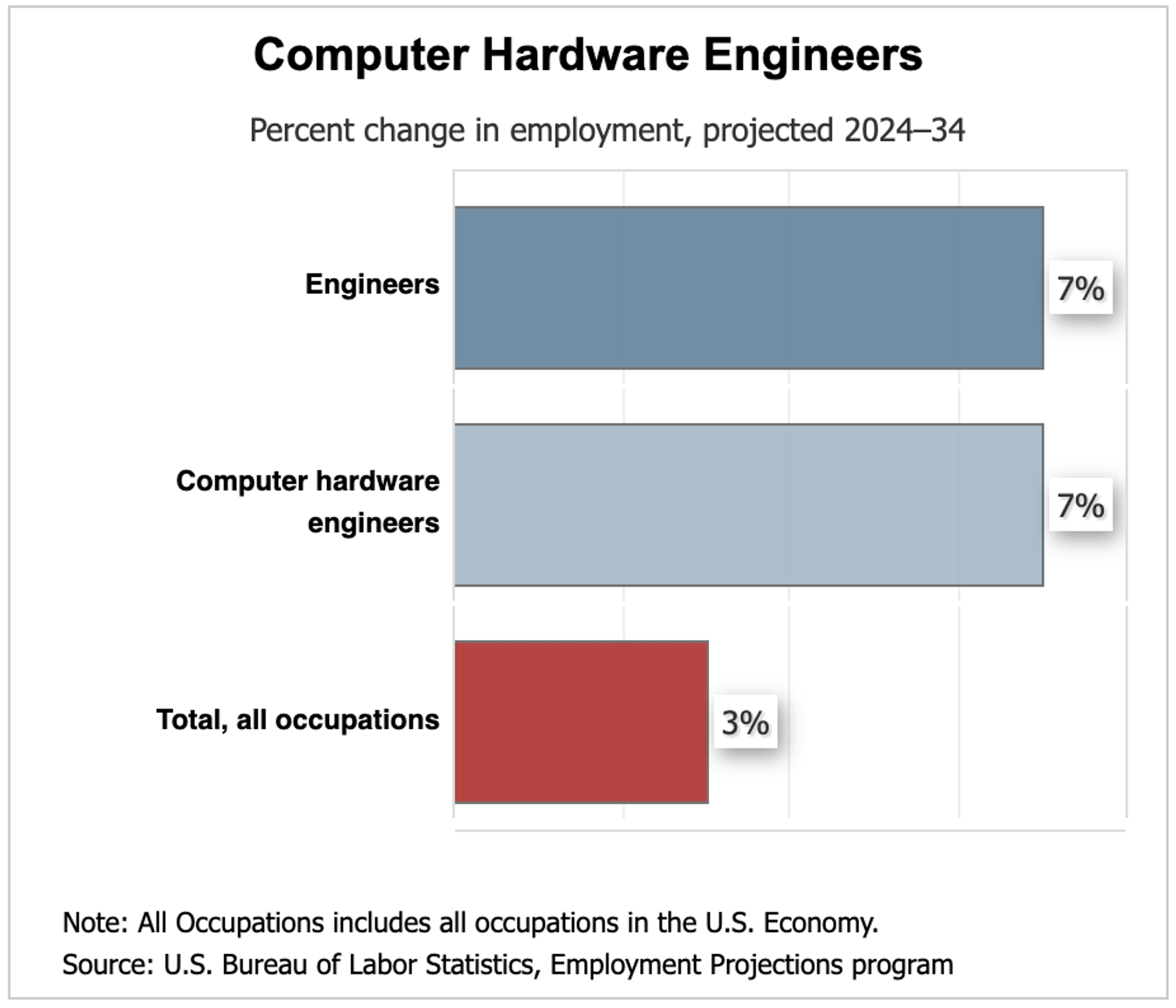
Mechanical Engineer
Next one is Mechanical Engineer — my profession — it anticipates a 9% growth by 2034. Mechanical engineers work in a range of industries and on many types of projects. As a result, employment growth for these workers varies by industry. As manufacturing processes incorporate more complex automation machinery, mechanical engineers are expected to be needed to help plan for and design this equipment.
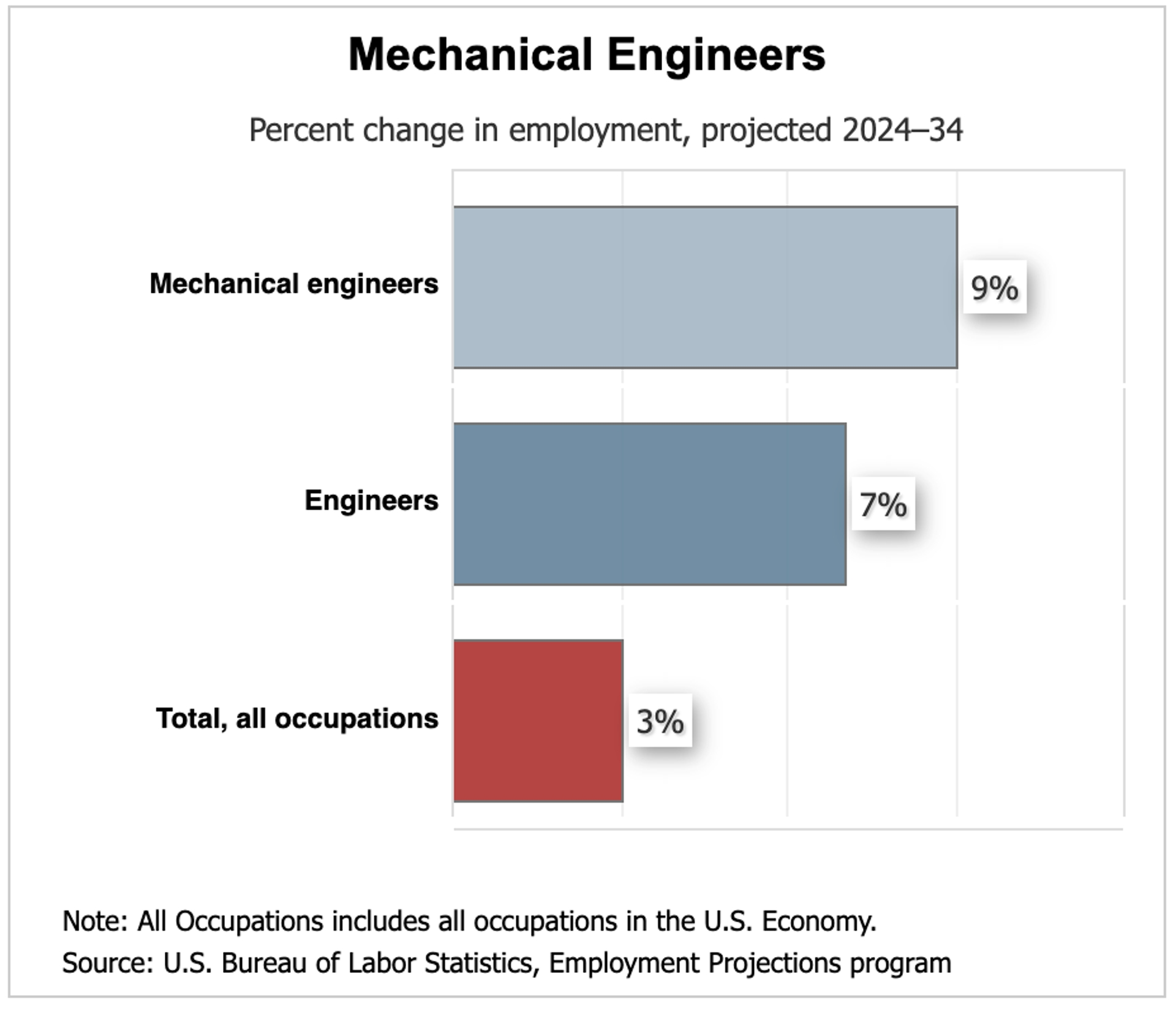
Renewable Energy Engineer
Next is a Renewable Energy Engineer. As the world pivots towards sustainable energy solutions, those entering this field can expect demand growth of 15% in the next 10 years, reflecting the urgent global shift towards renewable energy sources like solar and wind.

If you’re choosing your degree or planning a career pivot, this video ranks the best engineering majors for the future — with insights that perfectly complement today’s article.
Software Developer
The next on our list is a Software Developer. It's the cornerstone of the tech industry, with seasoned professionals earning $133,080 a year. Overall employment of software developers is projected to grow 16 percent by 2034, much faster than the average for all occupations. Increased demand for software developers, software quality assurance analysts, and testers will stem from the continued expansion of software development for artificial intelligence, Internet of Things (IoT), robotics, and other automation applications.
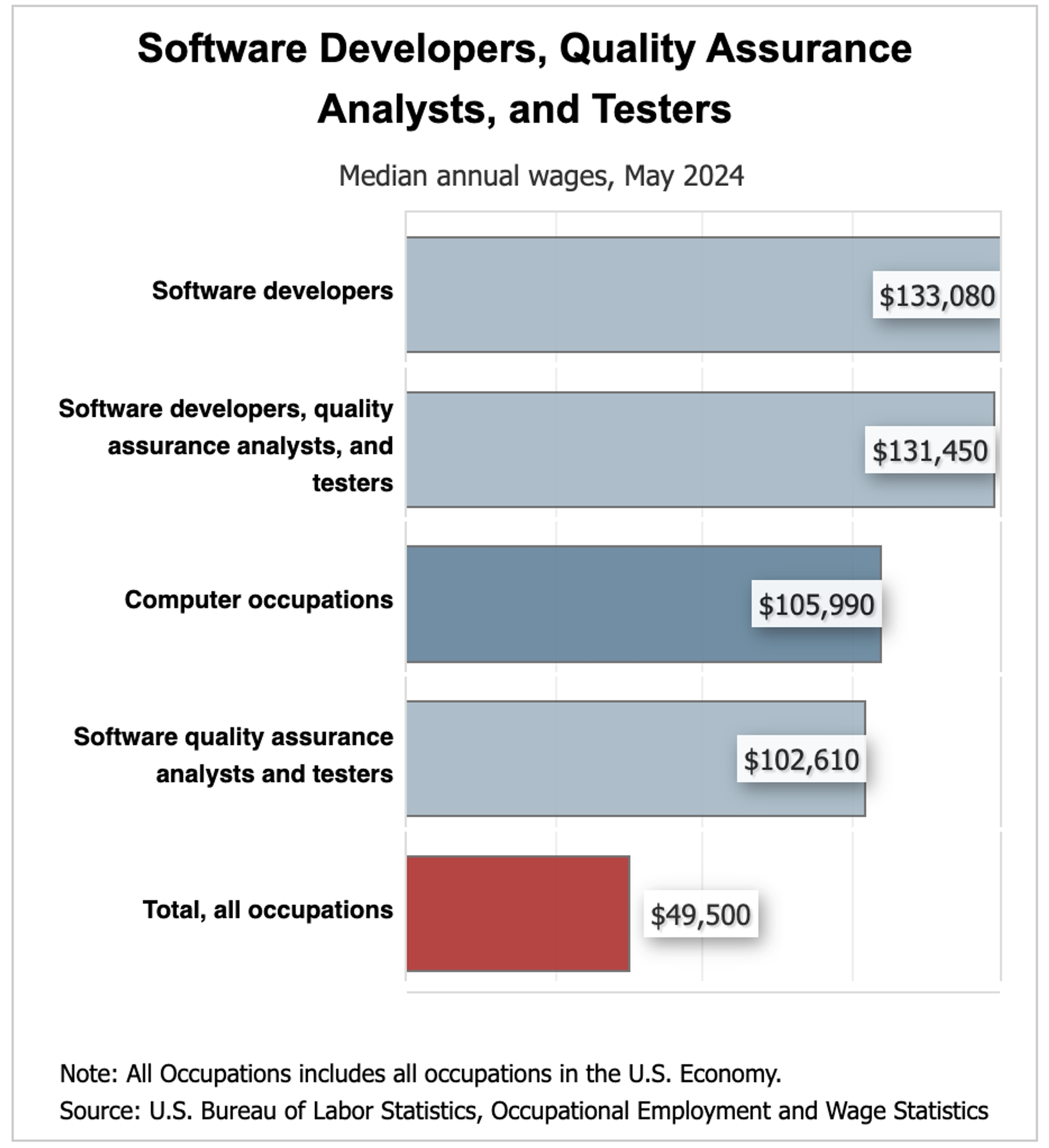
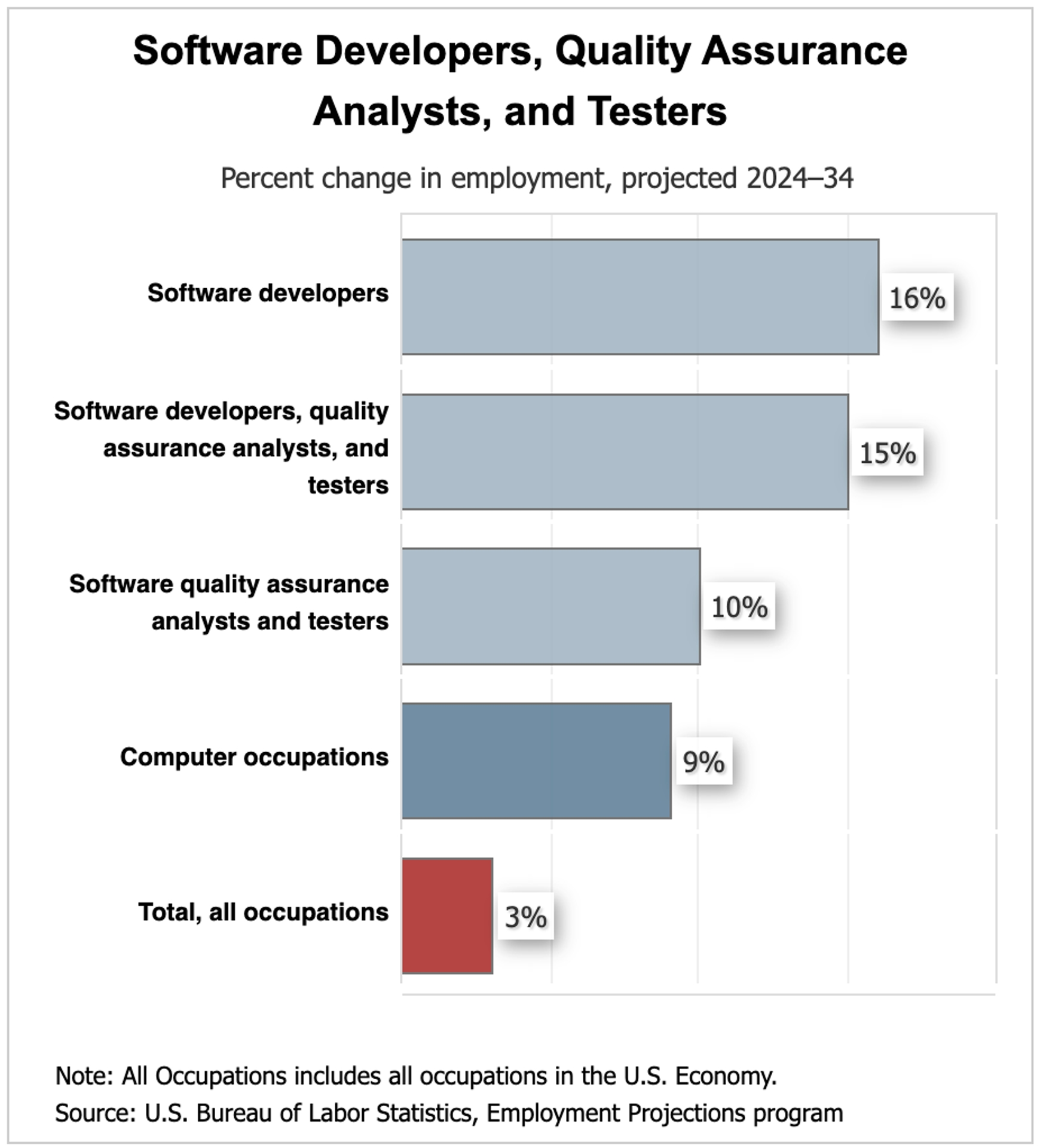
Information Security Analyst
Next is Information Security Analysts. Employment of information security or cybersecurity engineers is projected to grow 29 percent in the next 10 years. Cyberattacks have grown in frequency, and these engineers will be needed to create innovative technical solutions to prevent hackers from stealing critical information or creating problems for computer networks.

Data Scientist
Next is the Data Scientist. Quite a similar job, sometimes interchangeable, is Data Scientist, and the starting salary here is $112,590. Employment of data scientists is projected to grow 34 percent by 2034, much faster than the average for all occupations.
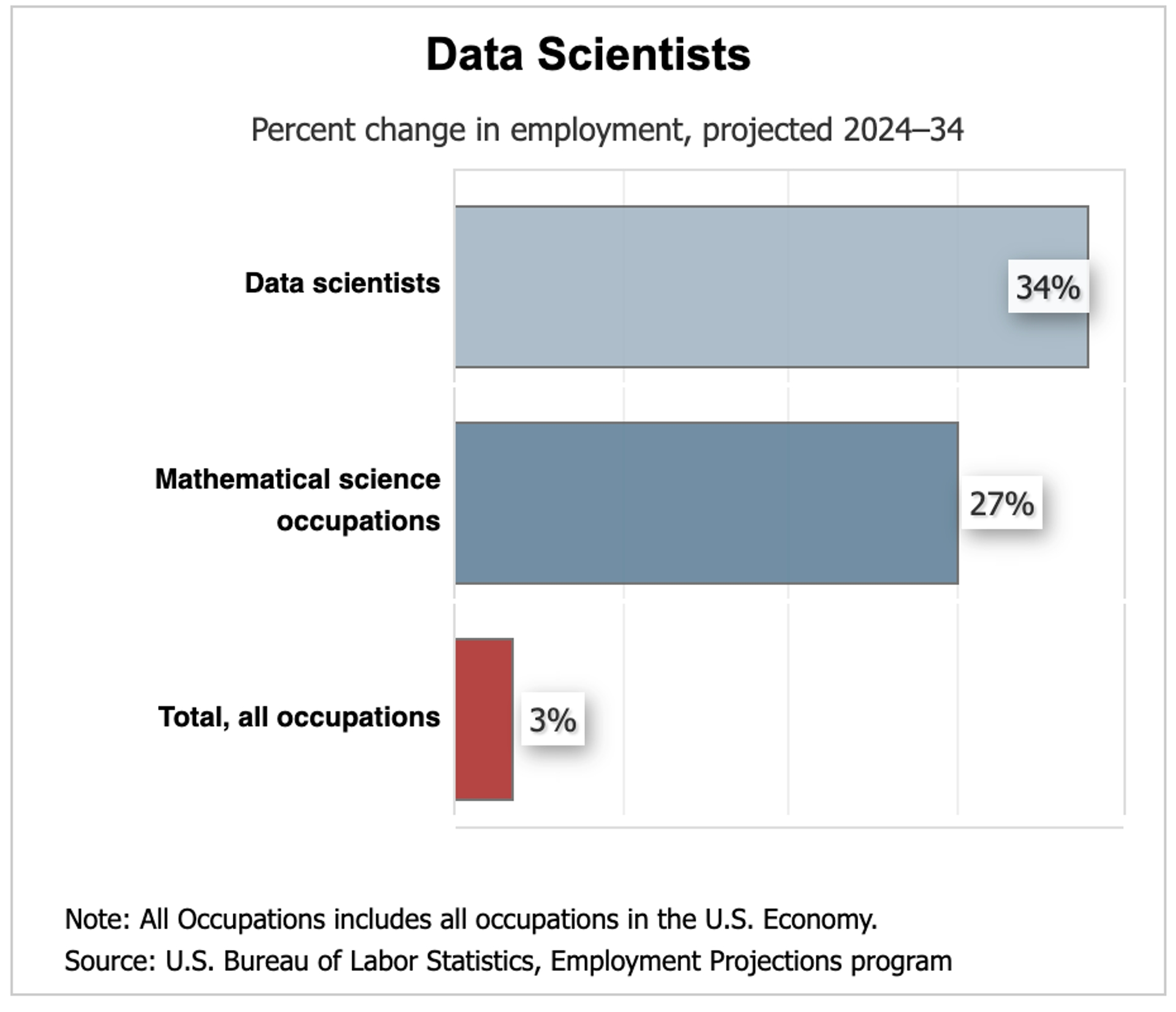
Artificial Intelligence Engineer
Finally, at number 1 is Artificial Intelligence Engineer. This cutting-edge field is shaping the future, with average earnings of $155,000 a year. According to some statistics, a staggering growth rate is predicted at 76.3 percent over the next 10 years.
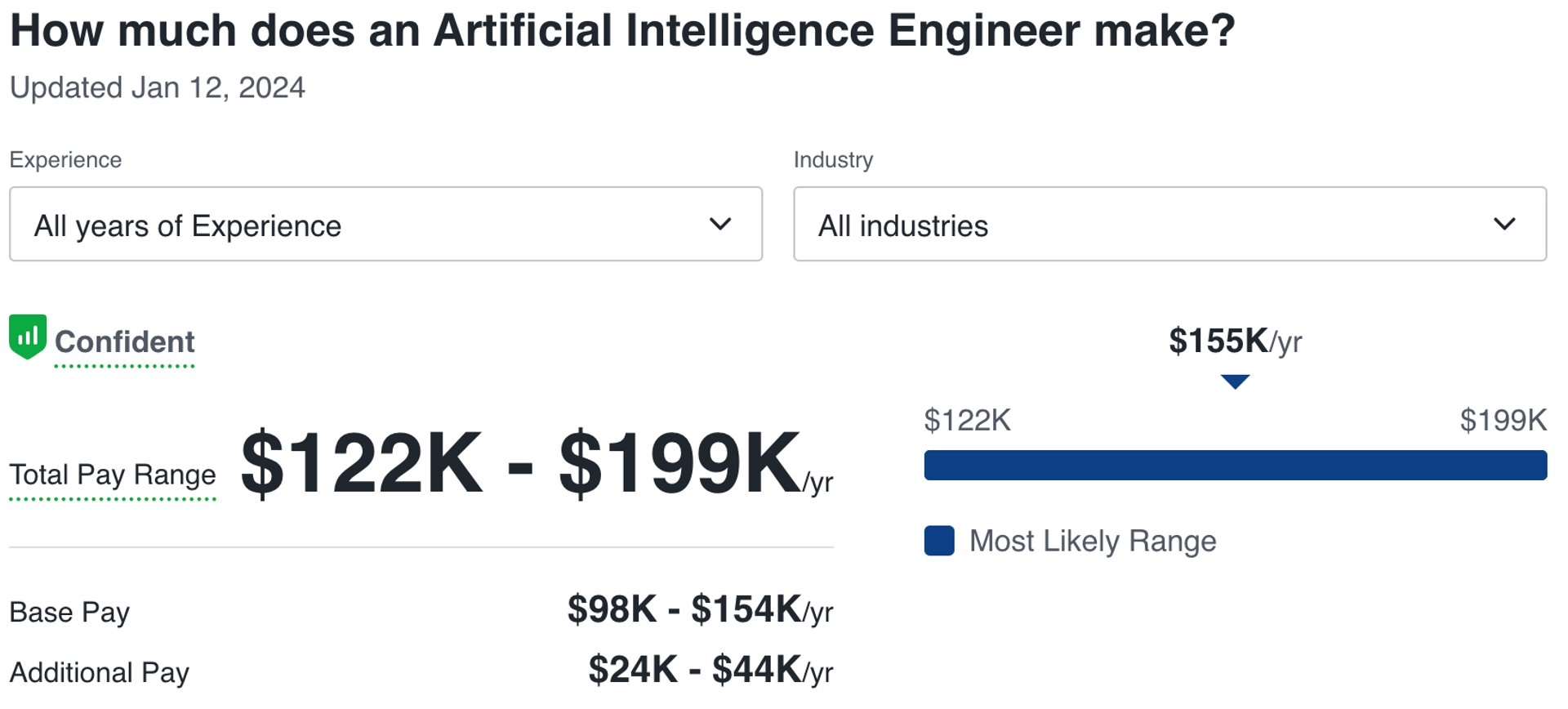

As I said earlier, my top 3 degrees are AI Engineering and all occupations related to IT, but if you are far from IT and hate programming or coding, I would suggest looking at Biomedical Engineering and Agricultural Engineering. When it comes to IT, it's easy to see that it's a big part of our present and will be in the future as well. So why do I favor Biomedical and Agricultural Engineering? It's because the world's population is rapidly increasing, and with more people, there's going to be a bigger demand for food and health care.
So, guys, whatever path you choose, focus on skills that combine science, technical expertise, and innovation. Earning a bachelor degree from a reputable university in a growing field like electrical or software engineering will give you the best career development opportunities and access to high-paying jobs around the world.
Make your move!
Unlike generic resume builders, we provide industry-specific templates, intelligent suggestions for technical skills, and a streamlined interface that simplifies the resume creation process.
CREATE RESUMERecent Posts
Pub: 26 Jun 2025
30 min. read
How to Craft Data Engineer Resume: Comprehensive Guide and Tips to Get You HiredPub: 09 Sep 2025 - Upd: 11 Jan 2026
14 min. read
Engineering Internship Resume Examples: 5 Samples That Get Hired in 2026

